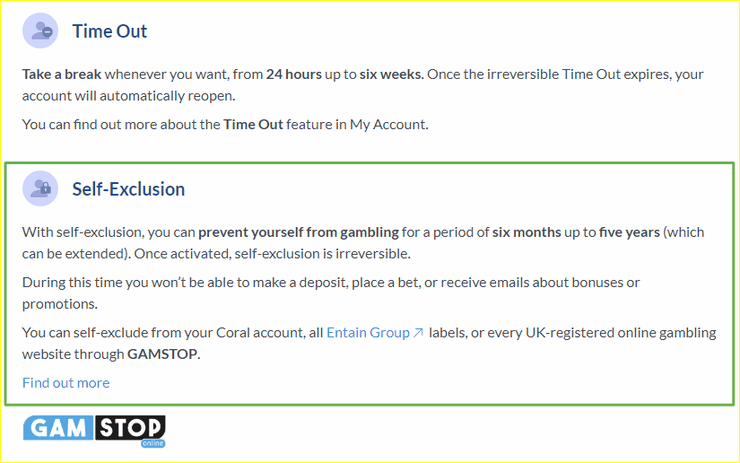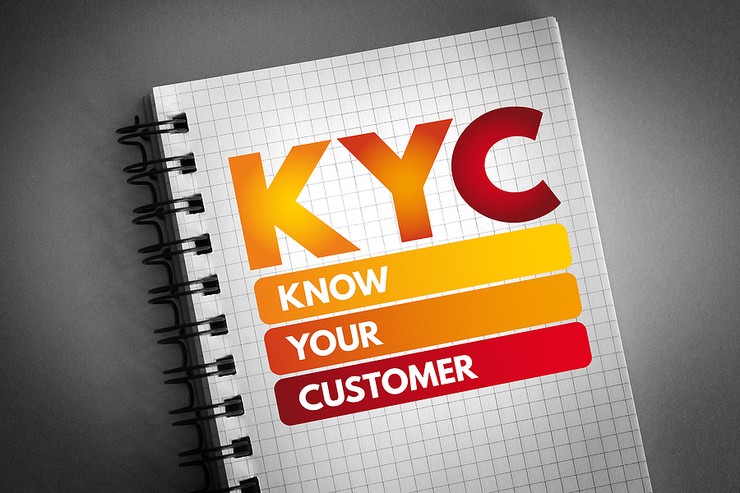 The gambling industry is probably one of the most vigilant when it comes to needing identification to even set up an account. These days it’s very rare if a bookmaker or online casino won’t ask you to prove who you say you are at some point, whether this be as you sign up or as you make your first deposit.
The gambling industry is probably one of the most vigilant when it comes to needing identification to even set up an account. These days it’s very rare if a bookmaker or online casino won’t ask you to prove who you say you are at some point, whether this be as you sign up or as you make your first deposit.
Many people see it as a bit of a burden, but we should realise that this is an important step to not only keep us safe, but also our money safe. There have been examples years ago of money laundering and ID fraud within the industry, so these days they are careful of who they allow in and who they don’t.
If you are a punter then the best bit of advice that we can give you is to have these bits of ID to hand as soon as you sign up. You may or may not get asked to send details in straight away, but even if you don’t it’s worth getting in contact with customer support and sending your information over. This will save a lot of time down the line when you come to withdraw any winnings.
Why do I Need to Provide Identification?

One of the main reasons behind the need for bookmakers to know exactly who you are is because their governing body, the Gambling Commission, have now made it a requirement to do so. They set out three key areas that they state are the reasons for this:
- To verify your age
- To check if you are self-excluded
- To confirm your identity
The Gambling Commission is able to access a huge database of players who have not only signed up to other bookmakers, but also information on their playing data. This means that should an ID flag up to be self-excluded from another bookmaker for example, they could inform the current bookmaker that they are signing up with to alert them that this is the case.
Age Verification
![]() Age verification is probably the most important aspect of the whole process. Obviously underage gambling is strictly prohibited, so making sure that players are of legal age is imperative.
Age verification is probably the most important aspect of the whole process. Obviously underage gambling is strictly prohibited, so making sure that players are of legal age is imperative.
Each bookmaker must be able to confirm your age within 72 hours of opening your account and if they to do so they have the power to freeze your account until proof has been issued.
If the bookmaker is either unable to verify a person’s age or is able to prove they are in fact underage, they will be able to freeze their money within they account. This will mean that any winnings will be kept by the bookmaker and any deposits will be returned to the payment method on account.
Self-Exclusion Check

Self-exclusion is a little tougher to track, but the Gambling Commission are keen to improve this method. Basically, as soon as you register your account your name and address linked will flag up if you have been self-excluded from either that site or another site. Companies are encouraged, but not required, to report players to the Gambling Commission so they can assist these players if need be.
Customer Identification
![]()
Identification checks are primarily to do with the prevention of money laundering. They are designed to make sure that individuals aren’t using money made through crime to turn it into legitimate funds. The Gambling Commission state that they encourage bookmakers to allow just one account per person, but admit that this is down to the bookmaker’s discretion. However, most do conform to this.
Essentially, whilst the Gambling Commission have these processes in place, it is down to the bookmaker to apply them and it is up to them to make sure they are able to verify ID. If this takes time, they are able to freeze the account indefinitely, until they are satisfied the person playing is who they say they are.
Know Your Customer (KYC) Laws

KYC stands for Know Your Customer and these systems run around the world. They are a little less specialised than the Gambling Commission who obviously only work within the gambling sector, KYC can apply to all sectors across a huge range of businesses.
The main reasons for the existence of KYC is to prevent the use of money laundering and also to confirm the ID of people who are using the products they are signing up with. Its role is to make sure that customers are not related to any money laundering by targeting these four key elements:
- Customer acceptance policy
- Customer identification procedures
- Monitoring of transactions
- Risk management
The process is used to collect and analyse peoples ID, then name match or cross reference any people suspected or previously convicted of money laundering. This can determine customers risk to that company, create an expectation of the transactions they might undertake and also monitor these transactions to target anything that may be suspicious.
How Betting Sites ID Their Customers
![]() Each bookmaker will work slightly differently in the way that they ID their users. You’ll find the biggest contrasts are in the timing that they will ask for ID. The majority will ask for ID when you make your first withdrawal. This is the time where any money laundering may be occurring so it’s now that they need to strike.
Each bookmaker will work slightly differently in the way that they ID their users. You’ll find the biggest contrasts are in the timing that they will ask for ID. The majority will ask for ID when you make your first withdrawal. This is the time where any money laundering may be occurring so it’s now that they need to strike.
Other bookies may ask for some ID straight away, especially if you are stating that you are only just of legal age. For example, if you turned 18 (the legal age to gamble in the UK) two days before you sign up, it could look a little suspicious. Bookmakers will automatically flag the age and then ask for more documents before releasing your account once they have what they need.
What most punters aren’t aware of is that all players are actually ID’d as soon as they register an account. It works through a credit check, but it’s a soft check which means that it won’t show up on your credit rating. They don’t look at the ins and outs of your credit report, more just check addresses match up and that you have some of form of history behind your attached bank.
The documents that you need to send will vary, but typically they include:
- Photo ID (passport, driving license etc)
- Proof of address (utility bill, driving license, bank statement etc.)
The bookmaker may ask you to send multiple copies of the same group of documents. So, they may ask for two different utility bills for example or they may ask you to send both passport and drivers license.
Sending In Your ID

In the modern day getting your ID to the bookmaker is very simple. Often you are going to get asked to send in highly confidential information and the bookmaker has a legal obligation to make sure that this information is safe. They have to meet many practices to ensure this which are set out by the likes of the Gambling Commission and KYC.
The first thing to look for before you send any documents is if the bookmaker is registered with the UK Gambling Commission. If they are, then that’s fine, if they are not you can look to see what legislations are in place for each constituency but we would only recommend betting with UK licensed operators.
In most cases a photo or a scanned copy of your documents will be suffice. Most people can do this using their smartphones so this shouldn’t be too much of an inconvenience. Given the technologies from cameras on mobile phones, they are often clear enough to make out what they need to know. Make sure your documents are up to date and the address is that of your current address.
But, you may be asked to send in the original copies in extreme circumstances. If you are required to do this, then make sure you post them via recorded delivery, that way you can see when they were delivered and who has signed for them should they go missing or the bookmaker claim they haven’t received them.
Chargebacks

Chargebacks are when a customer has lost money within a bookmaker and this money is subsequently refunded back to them. They are often related to players who have or have previously reported gambling issues and are a way for them to reclaim funds when they shouldn’t be betting in the first place.
The player will need to prove that they aren’t committing any fraud here and not just simply trying to reclaim losses. It’s often a long drawn out process where the player and the bookmaker will need to agree that the bets and deposits were made by a person who shouldn’t have been gambling.
But, there is a fine line between proving losses and proving problems prior to these loses. A successful case will likely get most or all of their losses returned, but cases that can’t be validated will not get any refund.
The problem here arises with money laundering and even fraud. It’s not linked with what the Gambling Commission deem to be player safety, but works on an individual case. It is on the assumption that the player was unable to prove what the costs were at the time and not simply down to the fact that these losses have occurred.